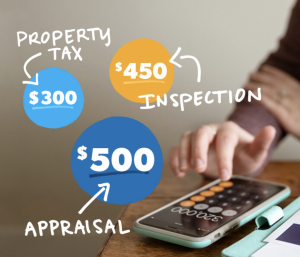How to Sell A Property With Tenants
If you are looking to sell your property with tenants, the first thing you need to consider is the tenants rights stated in your lease or rental agreement. You will also need to look at the local laws which dictate about selling a house with a tenant.
Even though the home is yours, selling a house with a tenant may land you in trouble with the law. To avoid the headache, here’s a few options below.

Table of Contents
1. Wait till the lease expires
The option with the least hassle is waiting for the tenants lease to expire before selling. This will typically work better with a month-to-month lease, however it will work for yearly leases as well. This is a very straightforward situation where you wait until the lease is up.
Pros:
- Time for updates – Waiting for the tenancy agreement to expire gives you time to get the house ready to show. You will be able to clean and repair any cosmetic updates as you wait, while still getting paid.
- No timing issues with closing – You will not have to go months with a vacant property, you will know when the tenants date is up, and the date you can sign the closing paperwork.
Cons
- Mortgage Payments – If there is a time between the tenant leaving and the date you close you will be obligated to make these mortgage payments for the time the property is in your name.
2. Selling the property with tenants
Another option to consider is selling the property while the tenants still live there. You will still have to come into an agreement with your tenants before proceeding to sell your property.
The tenants must cooperate and ensure the house is in good condition. They should also agree to leave within 24 hours to allow for showing. They must also be away from the house during inspection and appraisal. Part of your agreement may involve offering your tenants an incentive.
Pros:
- Staging – There is no need to stage the property if the house is currently occupied. The buyers will have an easy time seeing how they will fit in the house, this gives the potential to attract more buyers.
- Attracting Investors – Investors who are looking for rental properties may be inclined to your property if they do not have to go through the struggle of finding new renters.
Cons:
- Unhappy Tenants – If tenants do not agree with your decision to sell they may give you a hard time vacating the property, especially if they not for a showing.
3. Make an arrangement with your tenant
Your tenant has the right to occupy that property as long as their lease agreement is still active. You can only vacate them if they’ve violated the lease terms. These include failing to pay rent on time, damaging the property, engaging in illegal activity, and being a nuisance to the neighbors.
But if your lease doesn’t have a clause for early termination, you can offer your tenants an incentive so they leave earlier. This kind of payment is known as cash for keys agreement and is mostly used in lieu of eviction. The landlords offer their tenants some money so they can vacate the apartment within a given period.
You can also offer your tenants a discount on rent, offer to foot their moving costs, or cover their security deposit for the next house.
In some situations you can also offer your tenants a chance to purchase the home themselves.
Conclusion
Selling a house with a tenant doesn’t have to be a big deal if you understand the ropes. All you have to do is understand the rights of your tenants and abide by the lease agreements. Other times, communicating amicably with your tenant and coming up with a mutual agreement can do the trick.
Get Your Cash Offer Today
Contact Us Today To Get An Instant Cash Offer On Your Home







